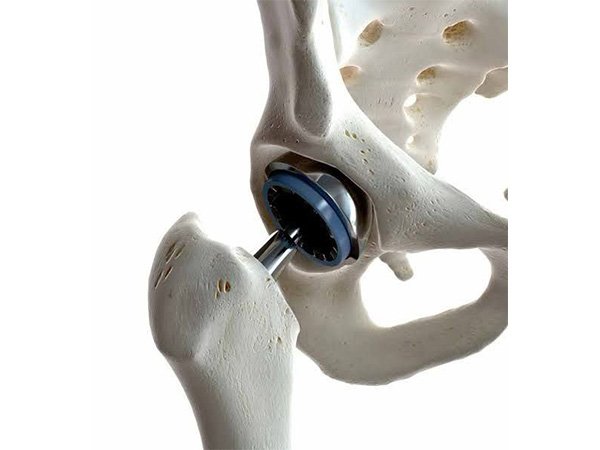
Hip Replacement Recovery: Q&A with a Hip Specialist
- April 19, 2025
- 0
Recovering from a major procedure like hip replacement involves much more than just healing. It takes thoughtful planning, commitment, and teamwork between you, your family, and your medical care providers. Questions around preparation, expectations, and post-surgery support are common. Dr Gaurav Gupta, a leading joint replacement surgeon in Jhansi known for his work in robotic joint replacements, answers frequently asked questions and shares guidance to make recovery smoother.
When can I go home after a hip replacement?
“Most people can walk and go home just a few days after surgery,” says Dr Gaurav Gupta. Contrary to popular belief, bed rest is not usually needed. In fact, getting up and moving actually helps speed up the recovery process. However, patients with existing medical issues like heart or lung conditions that require monitoring, or those who’ve had complicated procedures or lack family support, may need extra time in bed.
Will I need to use a walker at first?
Assistive devices like walkers or canes might be recommended in some cases, depending on how steady you feel after surgery. Your surgeon, physiotherapist, and primary care doctor will assess your mobility and safety needs. If there’s a risk of falling, they may suggest using a device temporarily, but for many patients, it’s not necessary.
When will my hip incision heal?
“Today’s surgical incisions for hip replacement are much smaller,” Dr Gupta points out. The incision is kept covered with a sterile dressing and usually heals within six weeks. To reduce the chance of infection, it’s best to avoid bathing until the wound has closed, which typically takes about two weeks.
How soon does rehabilitation start after the hip surgery?
Physical therapy begins early—often even before the operation. Afterwards, it resumes with guided exercises led by a physiotherapist. This starts in the hospital and continues at home. In the beginning, therapy focuses on simple movements like standing up or sitting down. Over time, it progresses to more demanding actions such as climbing stairs or getting into a car. A big part of recovery is building muscle strength, so resistance training for hip and leg muscles is essential.
Hip and Knee Replacement at Jhansi Orthopaedic Hospital
The Hip and Knee Replacement program at Jhansi Orthopaedic Hospital is led by a team of experienced specialists. From preparing for surgery to recovery and physical therapy, the hospital provides support at every stage. The goal is to help each patient return to their preferred lifestyle as efficiently and safely as possible.
What is considered a “normal” amount of pain after a hip replacement surgery?
Some discomfort and swelling after surgery is completely normal. To manage this, Dr Gupta recommends taking breaks between physical therapy sessions, applying ice to the incision site, and using anti-inflammatory medications as advised by your doctor. Keeping your leg elevated above heart level while resting can also help with swelling. However, if your pain level stays at a 6 or higher out of 10, it’s important to talk to your doctor. This could point to complications like an infection. Over time, as your therapy progresses, your pain should taper down to a level of 1 or 2 by the twelfth week.
How long does it take to recover after a hip replacement?
Recovery times differ from person to person, but generally fall between two to four weeks. Dr Gupta says this depends on your pre-surgery activity level, age, general health, and habits like nutrition and exercise. Patients who participate in “prehab”—physical therapy before surgery—often experience faster and easier recoveries.
How soon can I return to regular activities after a hip replacement?
Physical therapy is designed to help you return to everyday life—whether that’s working, spending time with family, or playing a favorite sport. How soon you can do specific activities depends on how physically demanding they are. If your right hip was operated on, you might need to wait a month before driving again. For the left hip, the wait could be shorter—just one or two weeks. Start with low-traffic areas and work up to regular roads. Be sure to wait until you’re off any medications that impair focus or reflexes.
For work, if your job is mainly desk-based, you might be able to return in about two weeks. Physically demanding roles that involve lifting or standing require more time—usually six weeks. Returning to sports also takes about six weeks, and swimming or water activities should be avoided until the incision has completely healed. Resuming sexual activity is based on your comfort level and can typically be done whenever you’re ready.
What could slow down my recovery?
Dr Gupta notes that complications like infection, bone fractures, or dislocation can delay healing. If you notice symptoms such as a fever, unusual drainage from the wound, increased pain, or trouble moving your hip, contact your doctor right away. Avoiding fast or jerky movements and going at a steady pace with rehab can prevent setbacks and reduce risk of falls or injury.
How long will my hip replacement implant last?
Newer implants are made using a mix of materials—plastic, ceramic, and metal—making them more long-lasting and reliable than older metal-only models. With proper care, these implants can last 20 to 30 years, and the chance of needing revision surgery is quite low.
How long after replacing one hip should I wait to replace the other?
“If both hips are affected by arthritis, some patients may benefit from replacing both at the same time,” explains Dr Gupta. A double hip replacement can be efficient and even lead to a quicker recovery for certain individuals. However, it demands more physical effort and support at home, as both legs will need strengthening. If choosing to do the surgeries separately, it’s best to wait at least six weeks between them. This spacing helps reduce risks like blood clots and allows better healing after each procedure.
Visit us on www.docgauravgupta.com, www.joh.co.in
Disclaimer: South Asia News Network and its affiliates shall not be held liable for any errors or omissions in the content provided on this website or for any actions taken based on the information provided. Users agree that the use of the website and its content is at their own risk. In no event shall southasianewsnetwork.in be liable for any direct, indirect, incidental, special, or consequential damages arising out of or in connection with the use of this website.







